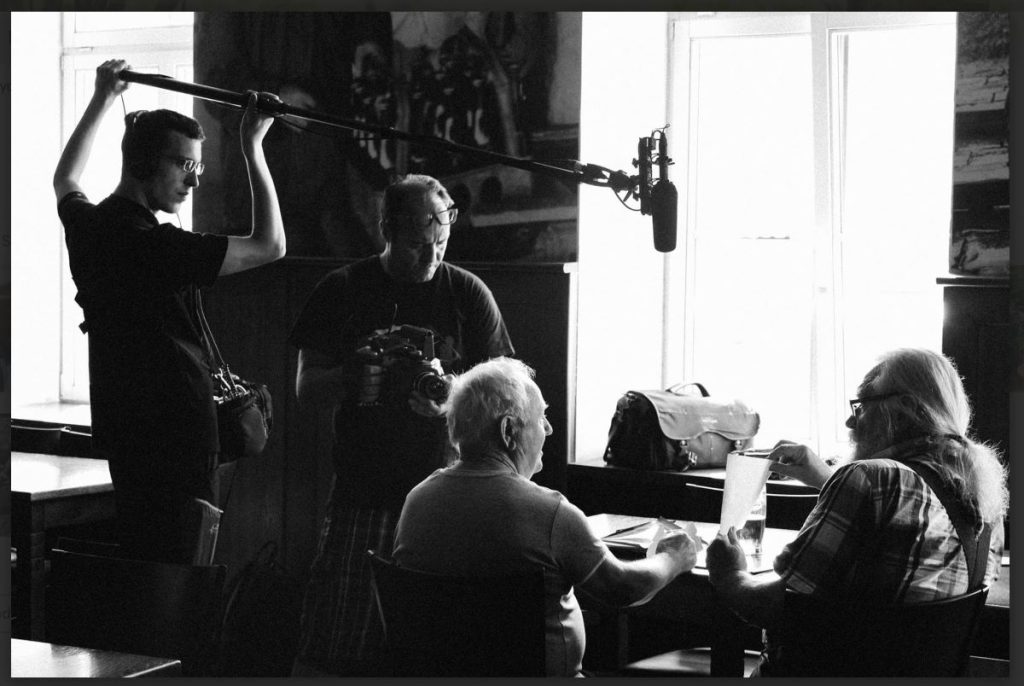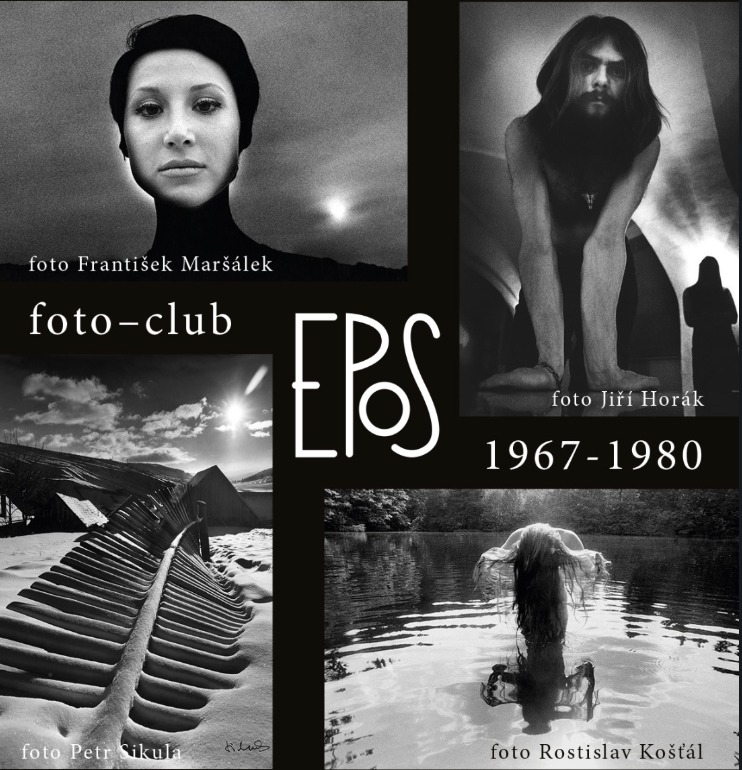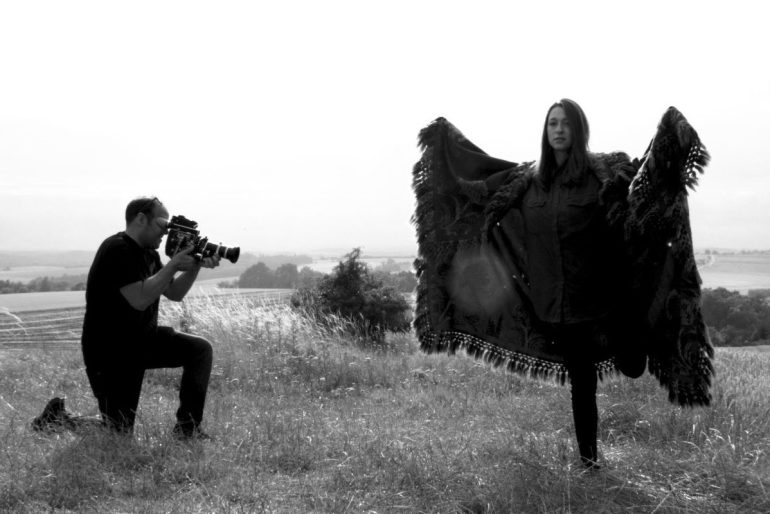Emanuele Ruggiero is an Italian film director now based in Brno, whose career spans theatre, cinema, soap operas, and documentary film-making. His new documentary, ‘EPOS 2.0’, premiering at Brno’s Kino Art on 4 March, focuses on the iconic Czechoslovak photography group of the same name, active in 1960s and 70s Czechoslovakia. Brno Daily spoke to Emanuele to find out more.
BD: Could you tell us how your film-making career began?
ER: My passion for cinema began in 1987. I studied visual arts at the University of Bologna, focusing on photography, and later attended the Luchino Visconti Film School in Milan. I’ve had the privilege of working in various fields, from theatre to cinema, and for many years, I was an assistant director for Italy’s most famous soap opera, CentoVetrine.
BD: How did the transition to documentary films happen, and what brought you to the Czech Republic?
ER: I moved to Brno with my wife and son in 2013. Here, I began focusing on documentaries, often exploring themes such as migration, history, and cultural identity. My first documentary here was Czizincii/Mygranti, co-directed with my friend and colleague António Pedro Nobre. It tells the stories of foreigners in the Czech Republic and Czechs living abroad who, upon returning, feel like strangers in their own homeland.

BD: You’ve touched on a significant theme—migration—which seems to be a recurring topic in your work. What draws you to this subject?
ER: As an emigrant myself, the topic of migration is close to my heart. I am fascinated by personal stories, the struggles, and the hopes of those who leave their countries of origin. I am also interested in how these experiences intertwine with the history and culture of different places. Working for Steven Spielberg’s Visual History Shoah Foundation, where I interviewed over a hundred Holocaust survivors, taught me how to tell powerful and personal stories through film.
BD: Let’s talk about your latest project, ‘EPOS 2.0’. What is it about, and how did it come to life?
ER: ‘EPOS 2.0’ is a documentary I co-directed again with António Pedro Nobre. It tells the story of a group of Czechoslovak photographers—Jiří Horák, Rostislav Košťál, František Maršálek, and Petr Sikula—and their “theoretician” Ladislav Plch, who formed in 1967 and were influential in the 1970s. The group was called EPOS. The film shows these artists 50 years later as they recreate some of their most famous photos in the same locations and, where possible, with the same people they photographed.
To be honest, this film had a long and troubled journey. Six years ago, I dreamed of making a documentary about the EPOS group, using analog cameras just like they did. I hoped to finish it in a year, but then COVID hit. Last year, I re-edited it and now it’s finally out. It’s a relief, though the timing feels far from what I envisioned. Still, I believe a film like this has great historical and cultural importance, as well as having a future in cinema.
BD: So it’s not just a documentary about photography but also about the history and political context of that era?
ER: Exactly. ‘EPOS 2.0’ explores how their work, inspired by the fashion and cinema of the French New Wave, portrayed the Czech “Big Beat generation” during the normalization period after the Warsaw Pact invasion. The film combines archival photographic material with contemporary scenes of the photographers, their memories, and their experiences of political persecution, migration, and exile, as well as how their lives changed before the Velvet Revolution.

BD: Could you go into more detail about the creative process and narrative structure of the film?
ER: The film opens with a reenactment featuring Jiří Horák, followed by Rostislav Košťál, retracing the historical background of EPOS with Ladislav Plch introducing himself and the other photographers. This sequence, along with subsequent reenactments and montages of EPOS’s archival photos and footage of exhibitions and historical events, tells the story. Sadly, during filming, we couldn’t interview František Maršálek, who passed away. I dedicated the film to him—it felt right to honor his legacy.
The heart of the documentary lies in the reenactments of EPOS’s photographs, where members revisit the locations of their original shots and recreate them with either the same individuals or new models. Through dialogues with each other and the people they meet, they explain why each photo was chosen, its importance, and its historical significance.
BD: From a technical perspective, how was the film created?
ER: We shot ‘EPOS 2.0’ in black and white, using both digital cameras and analog equipment like the Bolex 16mm camera and Fomapan R100 analog film. I aimed to emulate the style and black-and-white aesthetic of EPOS’s photography while maintaining a documentary feel, such as using handheld cameras.
BD: The world premiere of the documentary is scheduled for 4 March at Kino Art in Brno. What do you hope the audience takes away from the film?
ER: I hope the audience connects with the stories and personalities of the photographers and appreciates their legacy. I want the film to reflect on the power of art and photography as a testament to an era, alongside the historical and personal events that shaped it. I want viewers to leave with a piece of Czech history, told from an original perspective.
BD: What’s your approach to directing documentaries? What are the key elements you look for in a story?
ER: I seek universal stories that resonate emotionally. My goal is to capture the beauty and sadness of life while fostering empathy for the people I interview. I’m drawn to portraying reality—both its positive and negative aspects—and encouraging reflection on significant themes like multiculturalism or a nation’s historical past. Above all, it’s about telling a compelling story, whether personal, universal, or historical.
BD: Beyond documentaries, you’ve also worked in cinema, television, and corporate video production. How do you balance these different areas?
ER: I see commercial video production as another form of storytelling. I specialize in creating “documercials” or branded short films that combine documentary elements to promote a product, service, or brand. These use storytelling and cinematic techniques to engage viewers emotionally while conveying information. I like to call myself a “film storyteller”, as every project allows me to experiment and express my creativity.
———————————————————–
‘EPOS 2.0’ premieres on 4 March at Kino Art. Tickets are CZK 160 at full price and CZK 140 for students, and can be purchased from the Kino Art website. Find more information about the film on its Facebook page.
Brno Daily is a media partner of ‘EPOS 2.0’.






